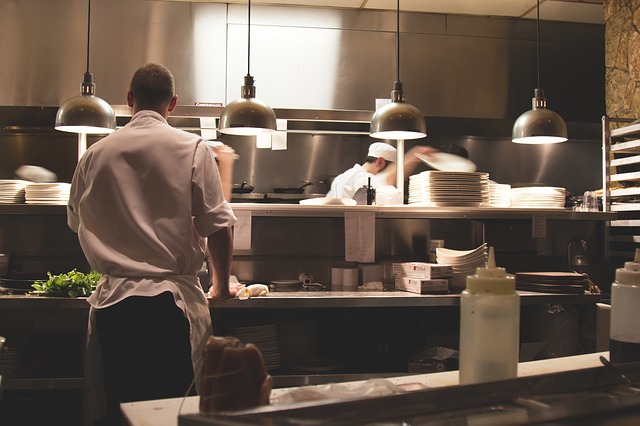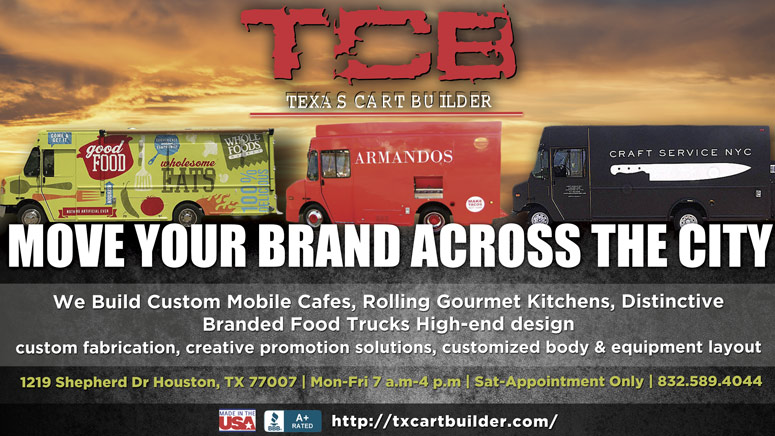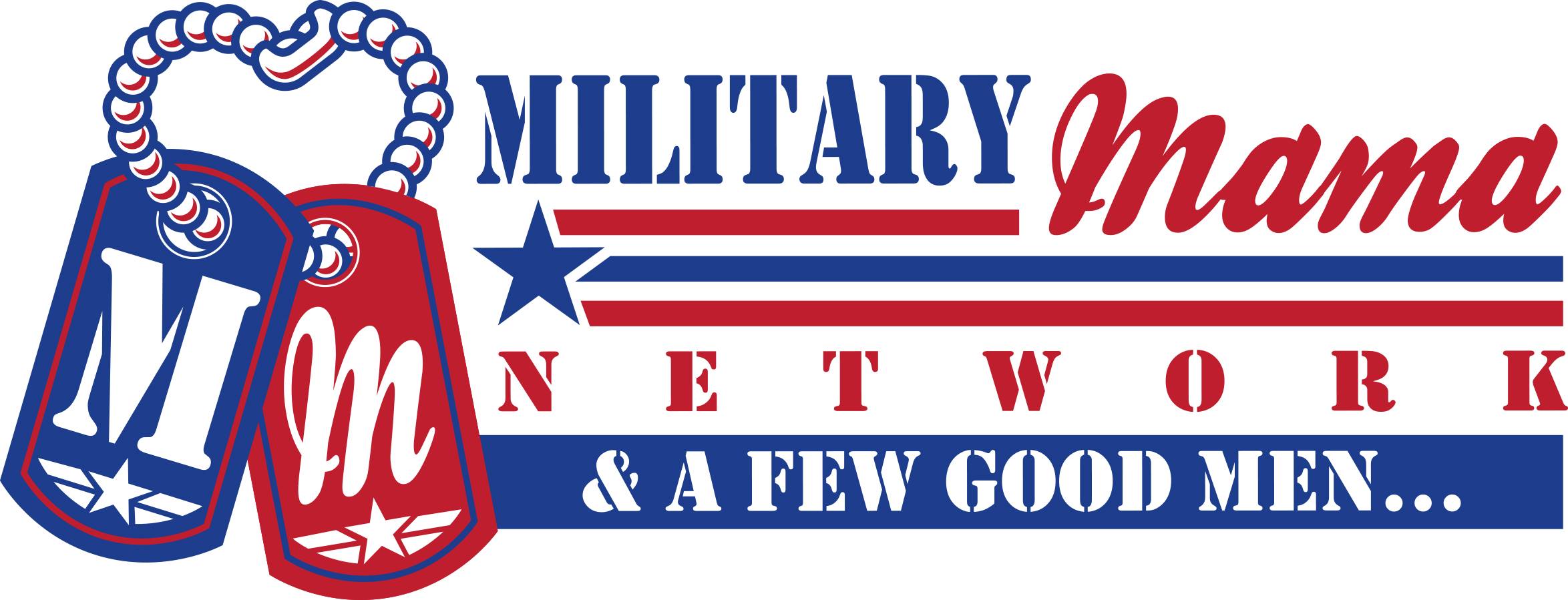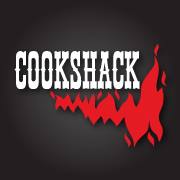
This Article is Part of the Series, “Are You Ready to Start a Food Truck Business?”
A Small Business Series of Articles for Food Truck and Mobile Catering Entrepreneurs
Finding a commercial or commissary kitchen to support your mobile food truck or catering operation is one of the focal points one must consider when developing a business plan for your food truck or catering operation.
So, what exactly is a Commissary or Commercial Kitchen, you ask, and what type of space and equipment will yours need?
A COMMERCIAL KITCHEN is located inside of a brick and mortar structure (a building) which incorporates cooking stations and appropriate equipment to operate the stations. The type of cuisine offered by the restaurant or food truck, as well as the philosophy and preparation techniques of the restaurant’s head chef, determine the focus and the number of the stations present in a commercial kitchen (as well as the type of equipment the kitchen should have). The physical size of the restaurant or food truck, (concept and operation) is also taken into consideration when determining the type of commercial equipment and appliances selected for the kitchen. Commercial kitchens typically include much larger spaces (stations) than traditional residential kitchens.
A COMMISSARY KITCHEN is a commercial kitchen that is used to conduct the necessary food operations for a mobile cuisine, such as food truck, mobile catering, food tents, kiosk, food carts or concession trailers. Food operations includes prep, cooking, dishwashing, parking food trucks, filling water supply on truck, draining grey water from truck, storage of raw food supplies and more.

A commissary kitchen is simply a commercial kitchen that effectively supports your mobile cuisine from the prep stages of your business to the clean-up.
What should your kitchen have?
Equipment and Space for Food Preparation: Based on your current concept or specific menu, your search begins with finding a kitchen that has the adequate equipment and space needed to prep your food for the truck.
- For example, if you will be serving pasta in your daily venue, then you will want to ensure that the kitchen you use has the equipment capability of boiling your water/pasta, a prep sink large enough to drain/rinse pasta, workbench to prepare your pasta, then possibly an oven to bake the pasta dish, and finally a separate work area to store or hold your food transport containers or a steam table to keep pasta warm until departure.
- You will have to look at the entire prep process for your menu and determine all the equipment you will need and also if some task need to be completed simultaneously or incrementally. While a compromise of equipment may occur initially, the long term effects may be felt as the business grows.
- While we have mainly been considering appliances at this point, when developing your plan and finding a commissary kitchen don’t forget about considering a budget towards the purchase of misc and essential cookware and other prep/cooking equipment. Will the commissary kitchen come with a supply of cookware or do you have to supply your own. If you provided you own, where can it be stored?
- What is the condition of the equipment? Is it greasy, not cleaned thoroughly? These are concerns of many health departments, usually grease stains are indicative of food residue that has been cooked on in one form or another. Is the equipment cleaned to your standards or better? When I look for a kitchen and it has equipment I immediately look beneath, behind and on the sides to see what level of cleaning is done. I don’t want to spend time cleaning someone else’s mess especially in a shared kitchen.
- Consider whether the equipment be available each time you use kitchen or do you have to share equipment? Sharing a kitchen brings challenges all in its own and may be discussed in the segment or a future segment of Starting a Mobile Cuisine Business.
Storage: Once you’ve determined that the kitchen has adequate kitchen space for you to prepare your food, consider other requirements of your mobile cuisine. For example, will you be purchasing your food daily for prep prior to departing for your venue or will maintain an ample supply of perishable/dry products for prep. This requirement now generates multiple levels of support needed. If you are producing meat or fish products daily; you may need refrigeration or freezer support. If you have canned or other dry goods then you may need dry storage space with shelves to store your foods, spices or other ingredients. The volume you anticipate using determines the equipment size of the coolers you will need.
Things to consider:
- Will your mobile cuisine have catering capabilities? Will you have equipment on hand, such as chaffing dishes, serving utensils, or will you be using rental equipment? Or will you have both? Do you need dollies or other transport carts to load your equipment? Depending on the level of catering you desire to provide, storage space of your catering supplies may be necessary.
- What requirements does your food truck have? Will you need a fresh water supply or a waste water dump? How about your daily trash and leftover food? Most health departments will require your business to answer these questions, therefore it is important that your commissary kitchen meets the requirements to support these requirements. Some states may even require a specialize hose for fresh water and the state’s waste management department may require grease or waste water dumped in specific dump stations with grease traps or other filtration systems that protect the environment. Water is not limited to just your fresh water supply, you will also need to maintain the cleanliness of your vehicle, therefore assess if the commissary kitchen has the capability to support that operation or if you can fulfill that need by taking the vehicle to a remote cleaning site.

When searching for a commissary kitchen consider the type of commercial equipment needed for prep, dry storage space, and refrigeration/freezer needs.
Follow this link to learn where to find a commercial or commissary kitchen for your food truck…
In this series of articles, Tin Hut BBQ and Aloha Gourmet Food Trucks Hawaii Founder and Pitmaster, Frank Diaz, (full bio here) addresses the scope of owning and operating a mobile cuisine and catering business including:
- Finding a commercial or commissary kitchen to support your mobile food truck or catering operation.
- How to write a mobile catering business plan
- Tips for cultivating, training, and motivate a team
- Choosing a theme for your food truck or mobile catering business
- Food Truck and catering menu design tips
- How to book successful catering events
- How to improve your bottom line by avoiding a few rookie mistakes
- Courting investors, vetting vendors, and securing all the necessary licenses and permits required to operate a food truck or catering business
- Going mobile, from brick and mortar to food truck
Readers can reach out with the questions and topics you’d like to see covered. Simply email Frank at [email protected] and we may feature your topic or respond to your question in a subsequent article.







